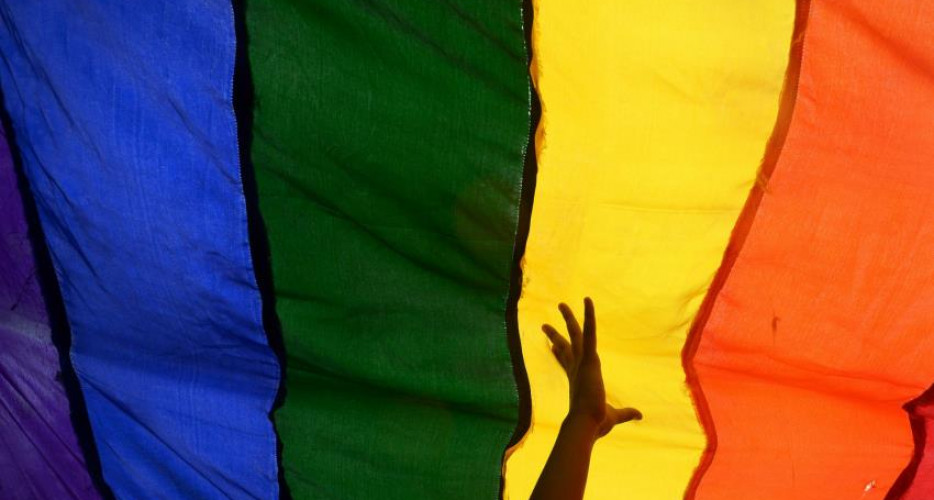
PEREGRAF
Afforded few legal protections and facing hostility from religious conservatives and other segments of the public, the LGBTQ+ community in the Kurdistan Region now appears vulnerable to targeted harassment from the security forces.
On April 1, the Asayish in Sulaimaniyah arrested ten young men perceived to be gay, justifying their detentions as being part of an anti-prostitution sweep in the Sarchinar neighborhood, an excuse that muddied the waters regarding the incident and provided a pretext for future harassment.
The arrests divided opinion in the Kurdistan Region. Although some were sympathetic to the men, many openly supported the arrests.
"The rights of the LGBTQ+ community must be protected," Zhiar Ali, a LGBTQ+ and human rights activist, told PEREGRAF.
"They do not want to be looked on as less-than. This is the nature of people, not a disease. Companies should not deny job opportunities to these people and the security forces should treat them properly," Ali continued.
"Being gay is a natural thing, it is inside human beings. Just as straight people tend not to be interested in people of their own gender, gays have little interest in the opposite gender," he added.
Supported by some parliamentarians and members of the Sulaimaniyah provincial council, especially those representing the Islamic parties, the arrests were noted with concern by the international community, including by the US Consulate General in Erbil.
In response, the Asayish released a justification of its actions, including a rare press release in English, accusing the detainees of prostitution and saying that the sweep was launched in response to complaints from people in the neighborhood. They denied that they had targeted the men for their perceived sexuality.
"After these people were arrested, we investigated the case and found that the 10 people were arrested by the Asayish on charges related to their sexuality," Suleiman Muhsin, director of media and communications for the Independent Human Rights Commission in the Kurdistan Region (IHRCKR), told PEREGRAF.
"Now all of these people have been released and no one has filed any complaints [against the security forces], but the way they were arrested was not good. It was against their human rights," Muhsin said.
IraQueer, a LGBTQ+ advocacy group, condemned the arrests in Sulaimaniyah, saying in a statement that "the arrests have no legal basis and claiming that LGBT+ people are a threat to the city’s security is misleading the public."
"Homosexuality is not a disease…We can say it is a natural subject. They need to be respected," said Negin Jaafar, a gynecologist.
Jaafar criticized the role played by some psychiatrists in spreading misinformation about the issue, in particular those who argue that entering into a heterosexual marriage is a way to change the sexuality of LGBTQ+ individuals.
Beyond fundamental misperceptions on the part of the public and some officials, there are also few legal protections for the LGBTQ+ community in Iraq and the Kurdistan Region.
Jalal Muhammad Amin, a member of the Kurdistan Parliament’s Legal Committee, told PEREGRAF that no political party has taken on the issue from a legal perspective.
"What exists is only related to human rights and discussions about freedoms of sex and to wear what you want. But this situation is against the traditions, Islamic codes, and the laws of Iraq and the Region," Amin said.
In Iraq and the Kurdistan Region, marriage is prohibited for same-sex couples and classified as being only between a man and a woman. Homosexuality is not criminalized under the Iraqi Penal Code, but a number of other laws, like modesty or prostitution statutes, are used to target LGBTQ+ individuals.
Ali, the human rights activist, said that homosexuality has always existed, citing archaeological evidence from an ancient Egyptian tomb from 2,400 years ago that includes an inscription from a member of a gay couple saying "I will live and be with you after death."
LGBTQ+ individuals are believed to make up approximately 10 percent of the world’s population, but there are no reliable statistics for the Kurdistan Region.
"There are so many people that hate this community and talk about them in a disparaging way, so their numbers remain unknown," Ali said.
Many countries around the world ensure legal protections and marriage rights for the LGBTQ+ community, but IHRCKR’s Muhsin argues that a human rights-centered approach is the best way to deal with the issue in Iraq and the Kurdistan Region since legal protections are weak.
The main blockage to legal rights for LGBTQ+ individuals is that the Iraqi constitution bars any laws that are contrary to Islamic law(Sharia law), which prohibits same-sex relations.
Dr Mohammed Penjweni, a religious teacher and head of the Sulaimaniyah provincial fatwa committee, told PEREGRAF that LGBTQ+ individuals cannot help being who they are and urged the community to educate themselves about this issue.
"We cannot decide on the issue of homosexuality. We must refer to the scientific and physical side," Penjweni said.
Despite this, he was adamant that Islamic law prohibited sex between people of the same gender.
"It is forbidden in Islamic terms," he said. "Sex in Islam is the right of the community before it is personal and there is a severe punishment for it in terms of sharia."